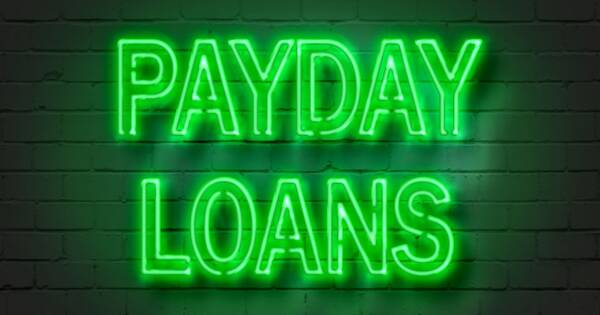Most people would agree that having a car loan is often a necessary evil. Plenty of people can’t just slap down tens of thousands of dollars to pay for a new car. Having said that, you don’t have to resign yourself to being on the hook for monthly car payments forever. It’s in your best interest to pay off your auto loan as quickly and efficiently as possible. Understand more about how to pay off your car loan faster and save some money.
Negotiate The Best Deal
Sometimes the best way to save money is before you buy the car in the first place. Even if you have no choice but to finance your purchase, there is always room to negotiate. This is especially true if you’ve maintained a good repayment history. Talk to your lender and ask them if you qualify for a lower interest rate. If they won’t work with you, it’s time to start shopping around for a better deal. Get quotes from various lenders and play them off each other. Take these quotes back to your preferred lender and ask them to match it. Chances are they will, since they want to keep your business.
Longer terms (eight years instead of six, for example) mean smaller monthly payments. However, you’ll pay more in interest over the length of the loan. Conversely, shortening your loan repayment term will increase your monthly payment but decrease your overall interest paid. Paying less now may make your budgeting easier. However, you’ll be paying more overall for a vehicle that continues to depreciate. Try to find a sweet spot in your budget that saves you the most money — without putting undue strain on your monthly finances.
Choose Bi-Weekly Payments and Electronic Billing
Many lenders offer a bi-weekly payment option that splits your car loan into two equal payments twice a month (usually the same schedule as your paychecks). This is a great option to take for a number of reasons. First of all, paying every two weeks actually sends 26 payments per year. If you traditionally paid your car loan on the 1st and the 15th of every month, that’s only 24 payments per year. Or 12 payments if you just pay once per month. Paying bi-weekly sends a couple extra payments, which will pay your loan off faster. It’s like making 13 monthly payments in only 12 months.
While you are setting up your loan, opt for online billing and direct withdrawals to streamline the process. Lenders prefer this too, since it cuts their processing costs. Some will even offer you a small discount for choosing to pay automatically. Just make sure that you always have enough money in your checking account on the day your car payment is supposed to come out of it. Missed (or late) payment penalties or NSF fees can add up in a hurry.
Round Up Your Payments
If you prefer to make your payments manually, consider rounding up the amount a little bit. It could be to the nearest dollar or closest multiple of $5 or $10. For example, instead of sending $411.23 every month, send $412. Or $415. Or $425, if you can swing it. If it doesn’t break your budget, consider rounding up the nearest $100 even.
That extra money being paid every month really adds up over time. It can equal a whole extra payment over a year or two. Best of all, it will take months (and hundreds of dollars) off the end of your loan. Paying off a five year loan in just four and a half years is always a great deal. By doing this, you’re saving money on interest and lowering your debt quickly.
Make Extra Payments
Building off the idea of rounding your payments up, go ahead and make any extra payments whenever you can. Did you get an unexpected bonus from work? Make a small stock market score? Maybe you inherited a respectable sum of money from a family member? Don’t just blow all that money. Instead, make an extra car payment or two. Remember that interest on car loans is usually calculated daily. So the earlier you can reduce the principal by making payments, the better off you will be.
Just make sure your lender doesn’t penalize you for making extra payments, paying off your loan early, or charge interest on every payment you make (instead of a set monthly interest amount). Most reputable car loan companies don’t do this, but you’ll want to know for sure. If your loan contract tacks on fees for extra payments or penalties for paying the loan off early, then this won’t help. It’s still worth a phone call, though, to ask about increasing your payments slightly in order to shorten the length of the loan.
Find Extra Money Wherever You Can
This is where it gets fun. If repaying off your auto loan is your top priority, think about ways you can cut your spending in order to apply extra payments to your loan.
Look at your luxury spending first — eating out, shopping, entertainment, services. Consider limiting or suspending some of them (even temporarily) as you focus on repaying your loan. The faster you pay off the obligation, the faster you can enjoy those little luxuries again (and probably have more cash to spend).
Refinance
I may not go out of my way to refinance a car loan just because my lender charges fees for making extra payments. However, I will definitely switch if I can a better rate somewhere else. Interest rates have gone way down lately. That’s not just good news for those with mortgages. It can help you save money on your car loan too. Yes, even if you already have one.
Car loans can also be refinanced. For example, if you signed a six-year car loan roughly three years ago, maybe you’re paying 4.99%. These days, you can probably get a loan for 2.99%. Figure out what you still own on your original loan and start shopping around. Let’s say your car was $30,000 when you bought it. After three years of payments, you still owe $18,000. But now you can get a cheaper loan for $18,000, with new lower interest rates. As long as you don’t have to sacrifice your potential savings to any extra fees, why not refinance and enjoy three years of lower payments and less interest?
Work on Your Other Debt
There’s only so much you can do with each debt. However, if you have multiple forms of debt, then you can work on all your obligations and have more money to work with.
Refinance your car loans, yes. But you should also look into your mortgage. Can you refinance it and save yourself some money? What about your student loans or your credit card debt? Once you’ve done the work, then you’ll have more cash flow each month to pay down whichever one is doing the most financial damage to you. If that happens to be the car loan, then great. Pay that down. If not, then don’t hesitate to use the savings you found with car payments to pay down another debt that’s more crushing.
Cancel Any Unneeded Service Bundles
The car buying process is designed to be both exciting and a bit confusing. That’s why so many people end up buying those extra warranties or service plans when they purchase a car. Unfortunately, many of these services aren’t worth the cost. Even if they are, adding them to term of the loan means you’re paying for them (with interest) over the length of the loan too. Ultimately, they just make for higher payments.
The best advice is to simply not agree to buy these in the first place. In you do have one, though, comb through the fine print of your loan documents. See if you can save on your car payment by cancelling these services. You may even be able to “buy-out” these costs, paying out of pocket now to save on years of incremental payments. Here’s the true trick, though. Let’s say you cancel the extended warranty and service plan, and your car payment drops by $20 a month. You should keep sending that $20 payment every month anyway. That will pay off your loan a little bit early, in the long run.
Make It a Game
Personal finance is just as much about psychology than it is about math. Sometimes, playing mental games with yourself can really work. If you’re having trouble making extra payments, try this trick. Every time you score a discount on something, pretend you’re paying full price but send the different straight to your car loan. Did you get 25% off your new running shoes? Send the difference. Saved $50 on concert tickers by waiting for a promo code? Send the difference.
You’ll be surprised just how much progress you can make by sending these extra payments. You can take this one step further and send extra payments even if there are no discounts. I have one friend who just pretends everything is 10% more expensive that it really is, and sending the extra to his car loan every time he does some discretionary spending. He’s on track to pay off his car loan in half the time of the original schedule. It works.
Work Out the Math and Be Agressive
The reason my friend is so successful with his car loan payoff plan is because he’s disciplined. If you want to be like him, then I suggest you make an aggressive schedule for your loan payment and try to stick to it. It will be hard, but ultimately worth it.
Do the math. Figure out a faster payoff plan. Then treat the new payment amount as the new standard. By putting your foot down and not giving yourself any excuses, you’ll put way more into your loan. It’s going to help you clear that debt much quicker, which will help your finances in the big picture. Imagine paying off a new car in three years and then being able to still drive it for another three-to-five years without car payments!
Invest for the Long Term
Just because we are talking about slashing debt doesn’t mean we shouldn’t be investing for the future either. There’s room for both. When you put money to work, it just means that you’ll have more money in the future. Hopefully, that means there will come a day when you no longer need to get a car loan. Not having to pay interest over a five-year term sounds pretty good.
Of course, you might still opt to get a car loan, if it makes strategic sense. You some often find dealer financing on brand new cars for 0% (or very close it). There’s no trick, it’s just an interest-free financing plan. So go ahead and take advantage of these offers (if you qualify). You can use the money you’ll save on not paying interest to bolster your investment accounts. Even completely safe FDIC insured online savings accounts will pay a few percent return. That means your loan costs you nothing and the saved interest actually makes you more money.
The Bottom Line
Repaying your auto loan faster than its term has many advantages. You’ll have more money to budget for savings, repay other debt, or fund special projects. It will also boost your credit score and maybe even get you better insurance rates. Remember that you won’t need full collision coverage on a vehicle you don’t owe any money one. You’ll have more peace of mind as well.
Can you taste the freedom that comes with being debt-free? Follow these tips and you too will join the many of us who got out of those chains known as car loans.




